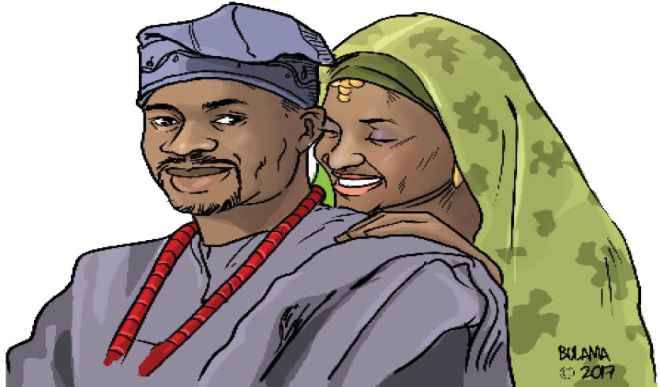Marriage: Should ethnicity be an issue?
Last week, the royal wedding between Prince Harry and Meghan Markel kept many glued to their television sets; likewise a lot of data was used up by internet subscribers to keep up with the updates on various social media platforms. It was one wedding that broke all norms of cultural barriers in the royal dynasty. […]


Last week, the royal wedding between Prince Harry and Meghan Markel kept many glued to their television sets; likewise a lot of data was used up by internet subscribers to keep up with the updates on various social media platforms. It was one wedding that broke all norms of cultural barriers in the royal dynasty.
Some months ago here in Nigeria, a governor’s daughter from the North married a governor’s son from the Southwest and major social media commentators thought it was wrong for such a union to happen. My summation is what better way to show unity than to practice inter-cultural marriages? The question then is: Why is tribe and cultural difference still a major problem for intending couples in some parts of the country?
“I still wonder when inter-tribal marriages will be accepted in the society. My fiancée and I took a painful decision and called it quits two weeks ago simply because our parents believe we can’t get married to each other because we are from different cultural, tribal and religious backgrounds. It’s one of the toughest times of my life as she is everything to me. To think that it was just our tribal barrier that ended the relationship hurts,” 30-year-old Bosun narrates.
Amaka, 39-year-old accountant, also narrates, “I am Igbo and married to a Yoruba man. During courtship, I saw the tribal difference as no big deal but five years after marriage, it’s beginning to be a big deal for us, especially him. Any time we have a misunderstanding, he constantly reminds me that I am not Yoruba by saying ‘I caused all this for myself by not marrying a Yoruba woman’. It hurts and makes me feel inferior. Was I wrong to have married outside my tribe? Not being the same tribe with my hubby doesn’t make me less of a woman or does it?”
Aisha Abubakar, 40-year-old accountant, says, “People forget that we are first human beings before any tribe, religion or race, which is mostly what is used to psychologically separate us. Nobody is a second-class citizen or inferior to the other, we are all unique for who we are. People intermarry both at national and international levels, so, why all the unnecessary talk about you or anyone being from one tribe or the other. I’d advise her mindset not to be deterred and no regrets by the choice anyone makes from marrying outside his/her tribe. With a heart as pure as hers to be able to find love in someone culturally different from hers, she will surely find her soul mate soon.”
Mr. David Falola, 40-year-old PR consultant, says, “I married a non-Yoruba woman, and when people try to intimidate her about her tribe she will always tell them that Yoruba blood runs in her veins as long as her marriage has been consummated. It beats my imagination how even educated people associate successful marriage with tribe, religion, race, colour and nationality. The society needs to move away from such thinking and mentality.”
